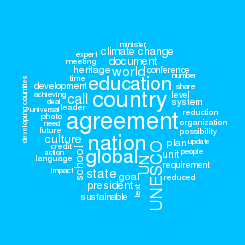Building on WSIS+10: Putting knowledge societies at the heart of the 2030 agenda
Event report
UNESCO held a side event on the first day of the WSIS+10 High-Level Meeting to explore opportunities for cooperation after the meeting. The panellists at the side event – representing government, civil society, business, and the technical community – were asked three questions:
- What are the top priorities for each of the entities represented on the panel with regard to the Internet and inclusive knowledge aocieties?
- How can Internet universality be developed in partnership with UNESCO and would UNESCO’s ROAM (Human Rights, Open, Accessible, Multistakeholder) principles be useful in achieving WSIS goals?
- How can entities partner with UNESCO to pursue the objectives of an inclusive knowledge society?
Ambassador Fonseca, Brazil, said he was pleased to see that the High-Level Meeting outcome document recognised the move from an information society to a knowledge society, noting that UNESCO, with its activities in the social and cultural sphere, was ideally placed to consider the intersection of ICTs and their ability to support the development of knowledge societies.
Ambassador Sepulveda, USA, mentioned that Paragraph 14 of the outcome document, which notes that the same rights that exist offline also apply online, was a key factor in achieving the goal of knowledge societies.
The side event also discussed various understandings of what ‘access’ to ICTs meant, with Getachew Engida, Deputy Director-General of UNESCO, noting that for UNESCO, multilingualism has always been a critical element of access; without the ability to access content and services in a person’s own language, physical access to ICTs would have no meaning. Ellen Blackler, Disney, noted that for Disney, local content and local languages were key to access. Chinmayi Arun, Centre for Communication Governance at the National Law University Delhi, questioned whether partial access (also known as ‘zero rating’) was an adequate substitute for real, unfettered access to the Internet.

